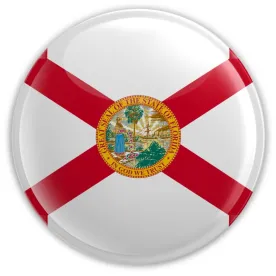In July 2020, the SAFE TO WORK Act (S. 4317) was introduced in Congress with the express purpose “to discourage insubstantial lawsuits related to COVID-19 while preserving the ability of individuals and businesses that have suffered real injury to obtain complete relief.” The bill did not pass before the 116th Congress expired. But the need for employer protection during the continuing uncertainty of the pandemic remains. Cue the state houses.
Sixteen states have already provided some form of employer protection from COVID-19 lawsuits for a host of different businesses. Currently, those states include Georgia, Iowa, Kansas, Kentucky, Louisiana, Massachusetts, Mississippi, Nevada, New Jersey, New York, North Carolina, Oklahoma, Tennessee, Utah, Wisconsin and Wyoming. As 2021 begins, state legislatures are convening and addressing practical challenges to employers caused by COVID-19, including whether more protection is needed in locations where some protection has already passed.
This article addresses one state, Florida, and its efforts to craft broad employer protection from COVID-19-related claims. While the Florida legislation is not yet law, some form of it is likely to pass during the 2021 legislative session. It may prove to be a model for other states seeking broad and comprehensive immunity from liability that can be decided in the early stages of litigation.
As filed, Florida Senate Bill 72 (and companion House Bill 7) recognizes the “threat of frivolous and potentially limitless civil liability, especially in the wake of a pandemic,” to cause businesses to react “in a manner detrimental to the state’s economy and residents.” To remedy this, the legislation proposes heightened standards of pleading and proof for any COVID-19-related lawsuit to survive a motion to dismiss and ultimately be litigated. Provisions include the following:
-
A broad definition of a COVID-19-related claim, to include any claim “which arises from or is related to COVID-19, and includes any claim for damages, injury or death.”|
-
Requiring any COVID-19-related claim be “pled with particularity,” and (b) include an affidavit from a physician attesting “within a reasonable degree of medical certainty” that the plaintiff’s “COVID-19-related damages, injury or death was caused by the employer’s acts or omissions.” The complaint must be dismissed without prejudice if either prong is not met.
-
Employers must make a “good faith” effort to comply with CDC or health department guidelines. During the initial stage of the lawsuit, the court must determine whether the employer made such an effort. If the employer did, the employer is “immune from liability.”
-
Even if the court finds that the employer did not act in good faith to comply with applicable guidelines, the employer will not be liable unless the plaintiff can show, by clear and convincing evidence, that the employer was “grossly negligent.” If the plaintiff does not do this, the employer is not liable.
- COVID-19-related claims must be brought within one year. The law, if enacted, applies retroactively.
It is too soon to know whether the Florida law will pass or if other states will adopt similar legislation. But the need for broad employer protection is clear and the impetus for providing it is growing. We will continue to monitor state activity and provide further updates.




 />i
/>i
